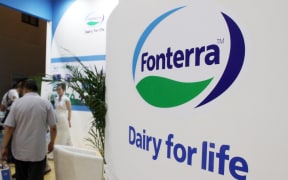
Stockton Mine in Buller, the largest exporter of high grade coal overseas from New Zealand, is tipped to be an applicant to renew its consents in the process proposed under the Fast Track Approvals Bill. Photo: Forest and Bird
The Fast Tracks Approvals Bill has been given a big tick by the West Coast Regional Council, saying it will lead to more jobs, and despite what others say, has environmental safeguards in it.
In a submission released this week, the council said the proposed fast-track approvals process could be used for West Coast road and mining projects, and a previously rejected hydro electricity scheme.
The council - with its mana whenua partners, Te Rūnanga o Ngāti Waewae and Te Rūnanga o Makaawhio - are mainly in support of the bill.
"The West Coast is rich in natural resources, and utilising the fast-track process for larger developments will add significantly to jobs on the West Coast," their submission says.
The Fast-track Approvals Bill aims to speed up approvals and cut consenting costs for regional and national projects of significance.
However, it has drawn criticism from some, that it will weaken environmental safeguards in the consenting process.
The regional council's submission said the proposed bill would support "a regenerative economic future" for the region.

Improving regulation and investing in critical infrastructure are key to the West Coast's economy, including forestry, fishing, agriculture, mining and tourism, the submission says.
"Despite the media hype, the Fast Track Approvals Bill has safeguards for the environment built into it, and the participation of the affected iwi and local authorities throughout the approval process," the submission said.
At the same time, the submission said improvements to expand representation on the expert panel are needed.
The two main reasons council supported the bill is:
- Potential development in the region
- Provision for managing adverse environmental effects.
- It says fast-track approvals could provide opportunities for larger scale developments and infrastructure in the region. Specifically,
- The proposed Waitaha River 'run of the river' hydro electricity generation scheme (rejected under the last government)
- The potential relocation of the State highway 6 at Franz Josef away from the Waiho (Waiau) River flood plain,
- Mining proposals.
The submissions say those developments otherwise face "high costs and lengthy delays" under the current Resource Management Act regime.
"Especially where an activity will be located on, or close to, public conservation land which covers 84 percent of our region."
But the proposed bill is also an avenue for exploration and development opportunities on conservation or stewardship land outside national parks on the West Coast, the submission said.
It referenced opportunities for gold mining, non-thermal coal production, strategic green energy minerals, and native timber recovery.
"Investment in infrastructure resilience is essential to unlock the region's mineral, agricultural and tourism potential."
It also suggested infrastructure upgrades are vital and "critical" to the region's natural hazard resilience -- especially as climatic events escalate and due to the risk of an Alpine Fault magnitude earthquake of 8+.
The submission argued that managing adverse environmental effects within the RMA framework is provided for in the bill.
This includes various existing RMA statues and the use of relevant national policy directions, existing regional plan and policies, and planning documents lodged by a local iwi authority.
Provisions to manage adverse effects also indicate and alignment and provide consistency with the RMA which is principally to manage "adverse environmental effects".
However, the submission said the final decision-making on fast track proposals should be more robust under the proposed law.
The joint submission calls for increased local authority participation on the expert panel, and better mana whenua participation while noting "several opportunities" in the bill for affected iwi and hapu to be involved.
At the same time, the proposed bill should account for constraints on iwi and hapu participation in the consultation process including the "relatively short" timeframes proposed which might not work for cultural protocols.
The submission also calls for greater iwi participation under the Treaty of Waitangi principles, including appointments to the expert panel.
"Iwi and hapu participation must be improved at the decision-making level."
LDR is local body journalism co-funded by RNZ and NZ On Air.





